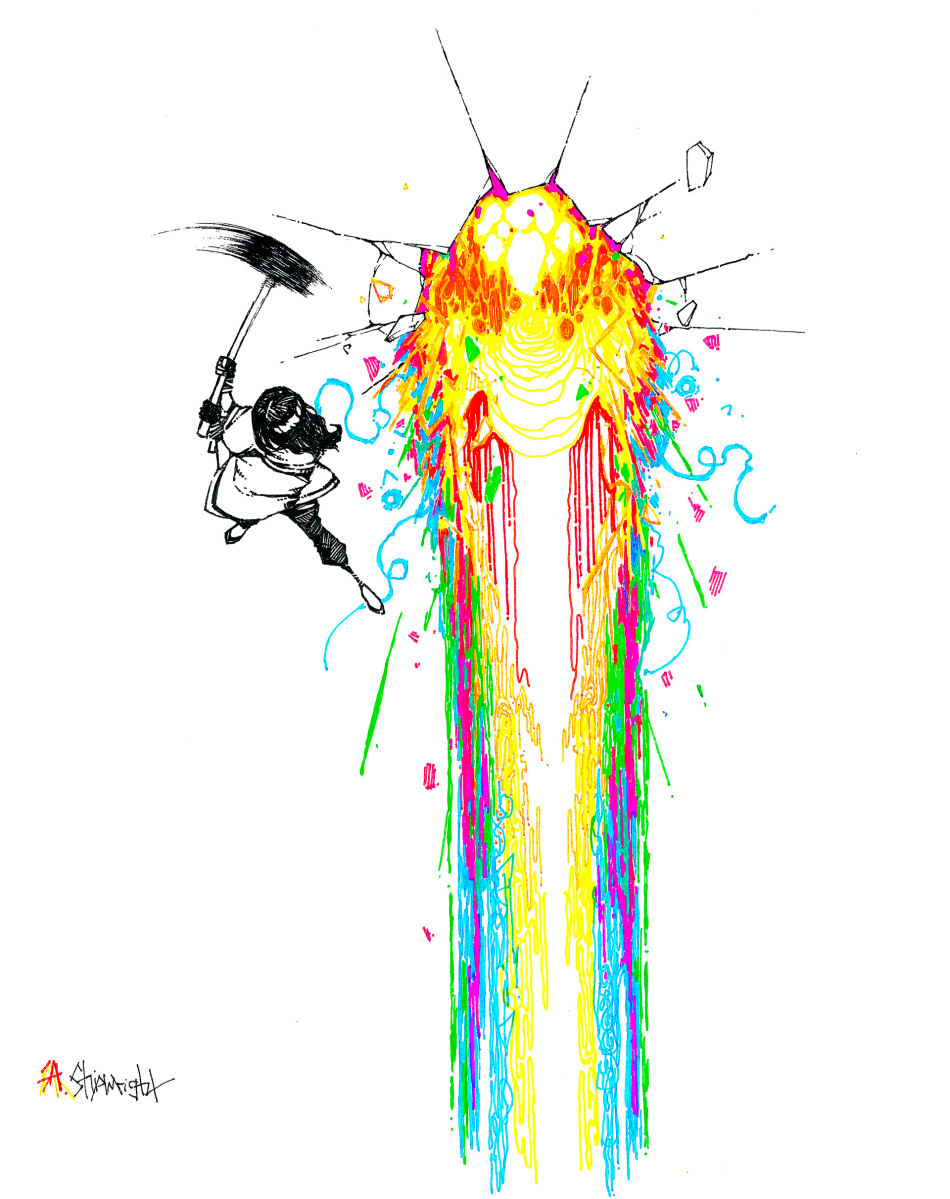Shipwright
As with RPGs, the core of matrix games is fairly solid. In RPGs, you play a character by saying what you do next within the scenario outlined by the game master. In matrix games, you play a scenario by saying what happens next, regardless of which characters “you control.”
What can easily change in RPGs and matrix games is the system of resolution. Do we roll a d20? Or play rock-paper-scissors? Or use a timer dexterity game?
In fact, when I first wrote about matrix games, one of the first responses was “You’re using 2d6, rolling 7 or higher? Why not one of those 50/50 resolution mechanics you keep talking about?” Totally up for discussion and iteration. Designs update.
Revision
After more play, I’ve come around to a new method of resolution: “If two or more players have different ideas of what happens next, they each roll 2d6, re-rolling ties. What the highest roller said happens next.”
Why?
First, because I swear by 2d6, of course.
Second, because now the question changes from “Does X happen or not happen?” to “Does X or Y happen?” Something NOT happening isn’t fun, that’s like getting a miss on your attack roll. You just get a sad tuba sound. No more.
Third, you can have more than two ideas for how things go forward. The question could be “Does X or Y happen?” but it could also be “Does “Does X, Y, Z, A, B, or C happen?” It’s all down to whoever rolls the highest. More input from more players, more interaction.
Fourth, a sneaky reason: because you can have more than two ideas for what happens next, you are in a sense voting on the outcome. More popular ideas have a greater chance of making it. As an example, say we have a fight between two characters, Alpha and Beta.
Player A: I think Beta wins the fight and throws Alpha off the edge of the ship!Player B: No, I think Alpha wins by throwing Beta into the mast, breaking his back.Player C: I agree that Alpha should win, but I think both Alpha and Beta get hurt in the scuffle.Player A: Okay, let’s roll!
From the discussion, it’s clear that the majority thinks that Alpha should win, but they disagree on how. Regardless, there’s still a chance that Beta wins because that’s what Player A is vying for. But just because Beta wins, the results of Player B and Player C have different consequences. There’s nuance here; it’s not a black-and-white democracy.
Thus, the rules as revised:
Start with a problem. Say what happens next. There is no order of play. Anyone can add to what happens. If two or more players have different ideas of what happens next, they each roll 2d6, re-rolling ties. What the highest roller said happens next. The host may veto what another player says, but this must be done before dice are rolled. The game ends when the problem is resolved.
70 words. 7 x 10. Perfection and wholeness. Nice.
Published
February 8, 2024
